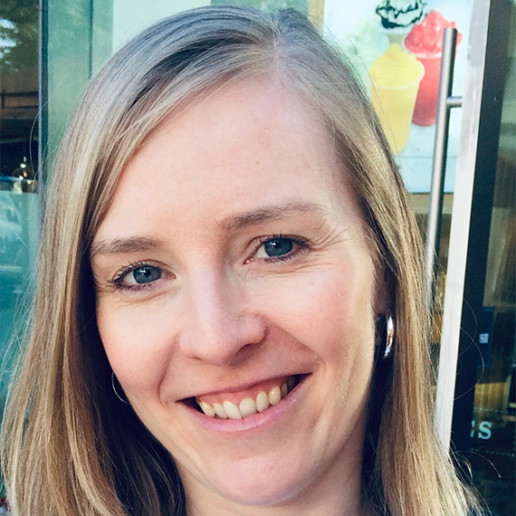
Written by Sharon Booth
Founder & Director, Solutions Not Sides. Sharon has an MA from Cambridge University in Theology and Religious Studies. She taught English at Amideast in Tunisia and then went on to work in Amman, Jordan as a Productions Manager. She was employed as PA to the Defence Attaché at the British Embassy, then returned to the UK and began work in Israeli-Palestinian conflict resolution, founding the Solutions Not Sides Education Programme in 2010. Sharon speaks Arabic and French and has studied ancient Hebrew. In January 2016, she was awarded a master’s degree with distinction from King's College London, specialising in nationalism and religion.
Dialogue is fundamental to building relationships and resolving differences. It is a crucial tool for addressing conflicts, yet when pain and injustice run deep, the idea of engaging in dialogue can feel futile—or even wrong.
When faced with deep moral disagreements, people may question whether dialogue is worthwhile. Engaging with opposing viewpoints can feel uncomfortable and even counterproductive. In such moments, the instinct may be to advocate solely for what feels right. Yet, it is precisely during these times that dialogue becomes most valuable—not necessarily to achieve agreement but to foster greater empathy, reflection, and mutual understanding.
Dialogue in a Polarised World
These challenges are heightened in times of deep societal division. When issues are viewed in black-and-white terms, conflicts become entrenched, and meaningful conversations break down. This dynamic has been evident in Britain in recent years on topics like Brexit, immigration, and the Israel-Palestine conflict. Though often framed as binary, these issues are complex and multi-layered. Recognising this complexity is key to breaking through entrenched positions—but it can feel overwhelming, particularly for educators navigating these discussions in schools.
In England, the Department for Education requires teachers to maintain political impartiality in the classroom. While this guidance is intended to prevent partisan bias, it has also led to uncertainty about how to approach difficult topics. Some educators, lacking expertise in areas like the Middle East conflict, may choose to avoid these discussions altogether. However, shutting down conversations about political and social issues does a disservice to young people.
Without education on these topics and training in how to engage in difficult conversations, students miss out on opportunities to develop a nuanced understanding of the world. Worse, they may grow up ill-equipped to engage thoughtfully with societal challenges.
Dialogue as a Tool for Empowerment
This is where dialogue finds its true purpose—not as an end in itself but as a means to empower young people. At Solutions Not Sides (SNS), we developed the Olive Branch Award for schools, colleges, and community institutions as a framework for discussing Israel-Palestine. Rooted in values of non-violence, equality, and the rejection of hate, the programme takes a “win-win” approach to contentious issues. Within this structure, dialogue becomes a tool for critical thinking, helping students articulate their beliefs while respecting others’ perspectives.
The Olive Branch Award is not about reconciling opposing views or forcing agreement. Instead, its purpose is to foster understanding—of social dynamics, emotional experiences, and conceptual frameworks—so that students can make informed decisions about how to act. By engaging in dialogue within this framework, young people learn how to stand up for their beliefs while recognising that others may hold different views. Crucially, they also learn that hatred has no place in a diverse, compassionate, and fair society.
To be effective, dialogue must be approached with care and supported by specific tools that become embedded in school culture over time. Skills such as active listening, effective communication, and empathy are cultivated over a three-year period through the Olive Branch programme.
One common concern is that engaging with differing perspectives could be seen as endorsing them. However, dialogue is not about validating all views equally but about understanding why different perspectives exist. This allows students to reflect critically without feeling pressured to accept or condone harmful viewpoints.
At SNS, we emphasise that education is not about excusing or justifying views but about understanding why people hold them. This approach enables students to develop both intellectual rigour and emotional intelligence—essential qualities for active citizenship.
Supporting Schools Through the Olive Branch Award
Schools and colleges that participate in the Olive Branch Award benefit from a range of activities and resources designed to foster dialogue. We support staff and students through training, networking, an annual conference for staff, ambassador programmes, priority places on our residential courses for students, and opportunities to engage with peacebuilders from Israel-Palestine.
This summer, the first cohort of Olive Branch schools will complete the three-year programme and receive accreditation. Some of the initiatives we’ve seen include:
- Lunchtime and after-school clubs exploring conflict-related topics like journalism
- School murals dedicated to peace and justice
- Students founding interfaith initiatives in their schools
- Peer-to-peer learning projects following SNS workshops
These initiatives show that, when given the tools to navigate complex discussions, students become empowered to address difficult topics with inclusivity and empathy.
The Bigger Picture: Why Dialogue Matters
In today’s polarised world, it’s easy to feel disillusioned about dialogue, especially when faced with deep-seated divisions. But avoiding difficult conversations only fuels misunderstanding and hostility. Through structured dialogue, we can equip young people with the skills to engage with complexity with confidence and compassion.
The point of dialogue isn’t just to resolve differences; it’s to empower individuals to think critically, act ethically, and engage constructively—even with those they disagree with. In doing so, we prepare the next generation not just to lead but to build a society rooted in mutual respect and shared humanity.
At its core, dialogue is about more than talking—it’s about listening with purpose and acting with integrity. Within a framework that prioritises education over division and understanding over hate, it becomes one of the most powerful tools for creating a better future.

